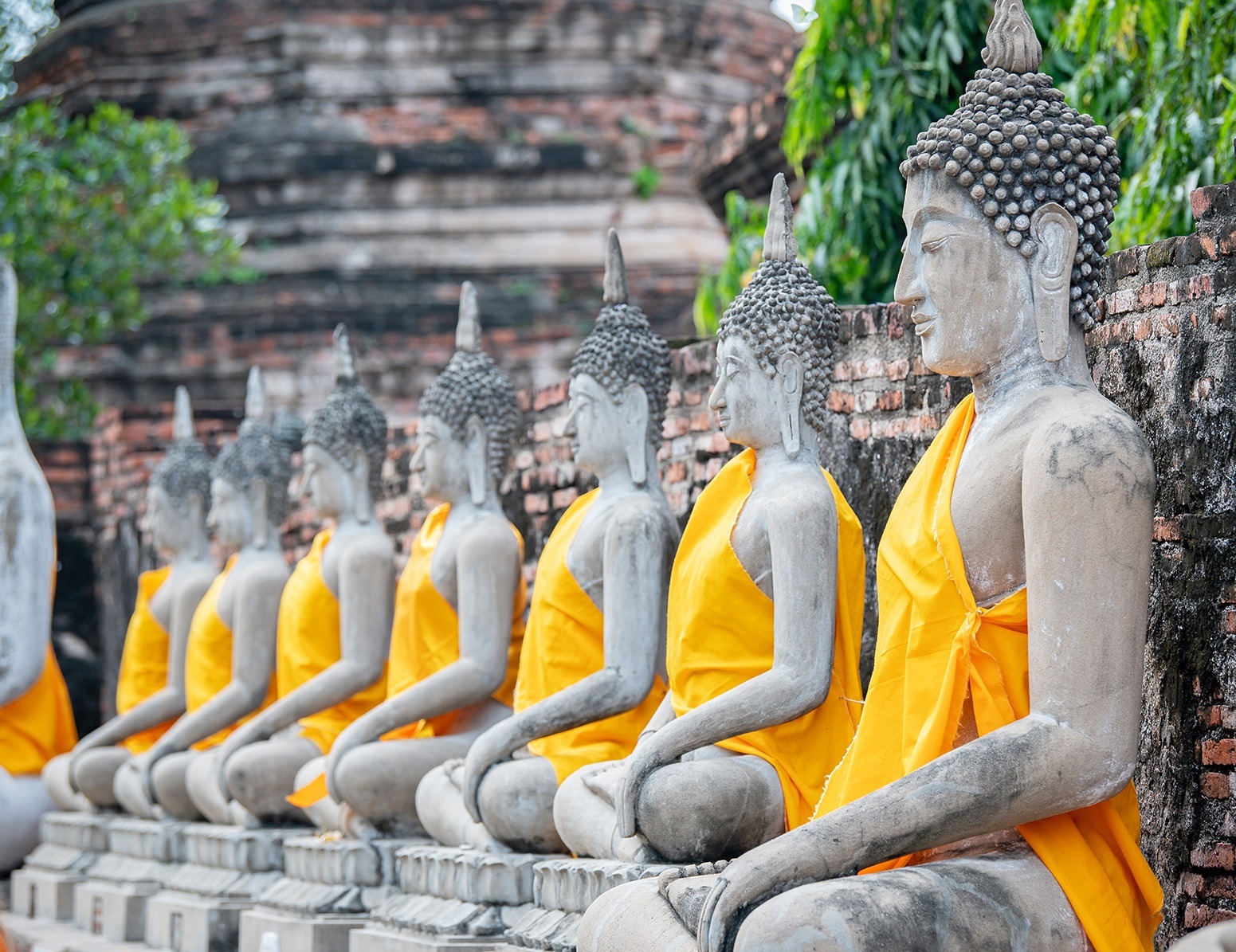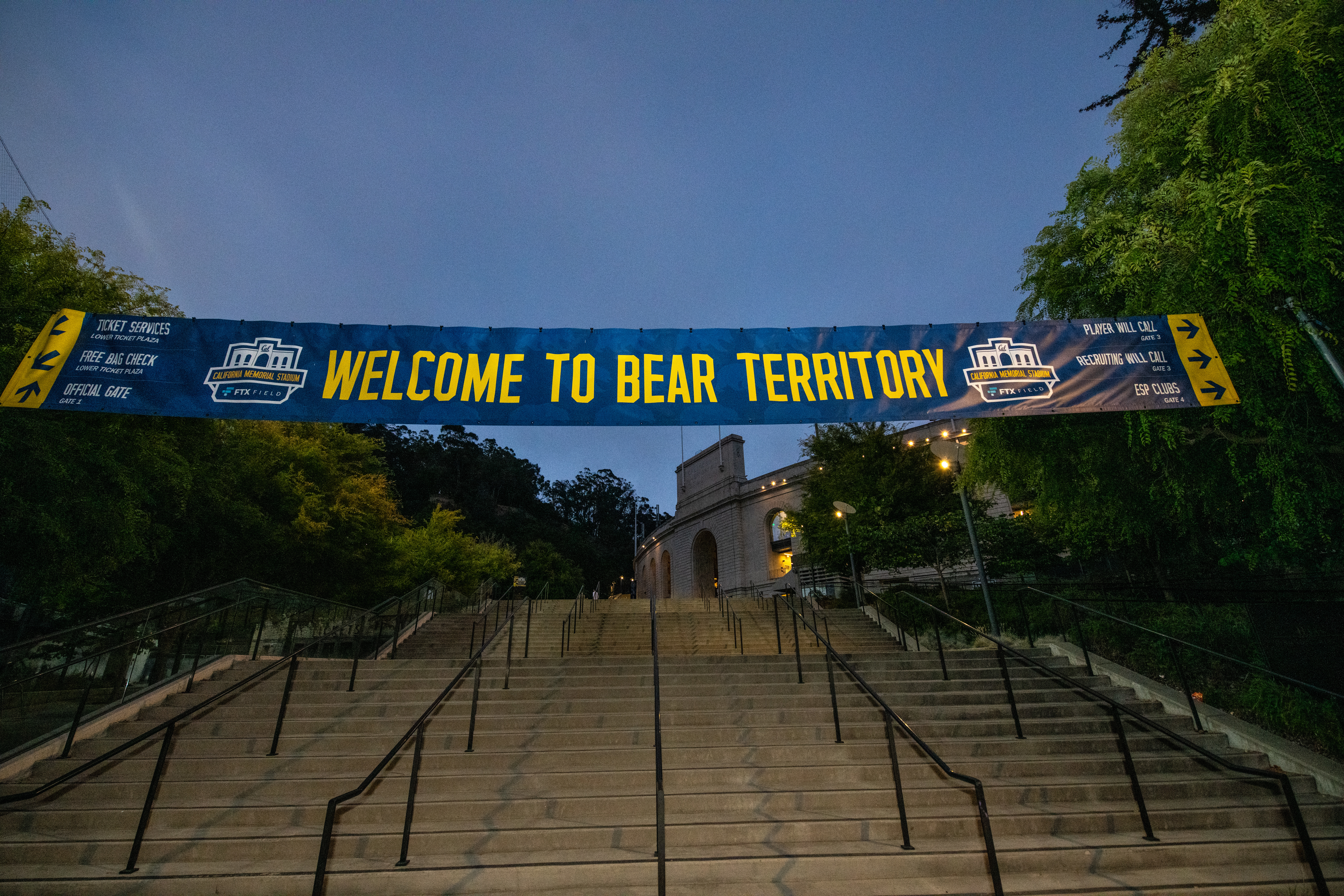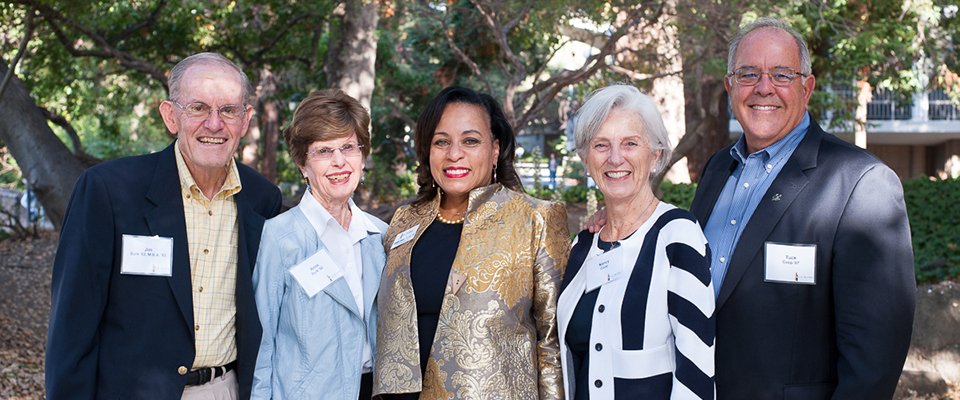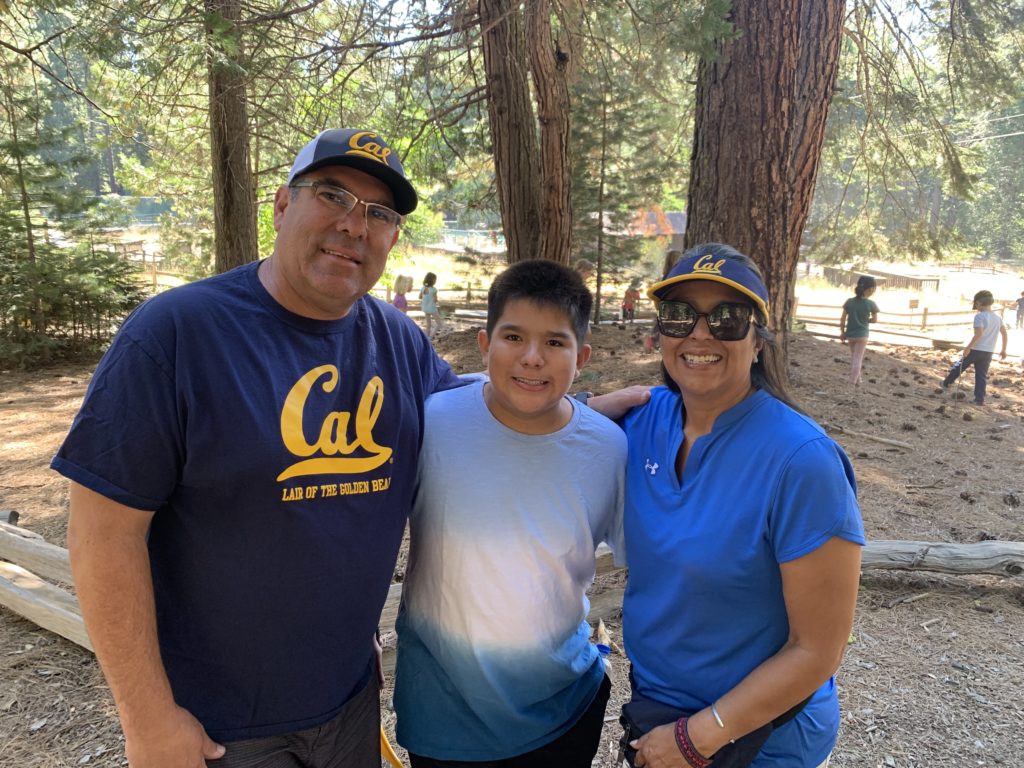Anderson has devoted his professional career to driving business improvements, with expertise in human resources. He has led DEIBJ initiatives and developed organizational strategies at many organizations—from Fortune 500 companies to nonprofits to educational institutions. He is also civically minded, serving as the City of Richmond’s Chair-Economic Development Commission, the Board of Directors of Richmond’s Chamber of Commerce, the City of Richmond NAACP former Executive Committee Member, Vice President of the Oakland Rotary Endowment, and board member of the Cal Alumni Association Board of Directors.
Anderson is also the author of the “Bear Territory” chant. He sat down with the Cal Alumni Association to share the origin story of UC Berkeley’s famous rallying cry.
Cal Alumni Association (CAA): Thank you for meeting with us today. Can you tell me a little bit about yourself?

Ahmad Anderson (AA): My name is Ahmad Anderson. My hometown is Richmond, California. I majored in political science with an emphasis on American politics, public administration, and city management.
CAA: How has attending UC Berkeley contributed to your sense of identity?
AA: I believe that my opportunity to attend the University of California Berkeley put me front and center with some of the most incredible people, students, staff, and faculty I’ve ever met. That diversity is not just based on race or ethnicity, but in addition to that, thought leadership, empathy, and the ability to walk with the future, if you will. Leaders of the world, the kings and queens of the world, and yet not lose the common touch. Being able to meet people where they are, recognize that my lens is my lens, but also to have an open mind and an open heart to support people in their mission in life.
CAA: Describe the camaraderie you found as a student athlete at Cal.
AA: I’ve learned to do all I can do, be all I can be, and build relationships. Athletes are known more for their brawn and less for their brains. But I would say to you, at the University of California in Berkeley, I had camaraderie amongst my fellow student-athletes, not only on the football team. I was a member of the team from 1978 to 1982, which included the big game against Stanford, famously known for The Play, where we won with four seconds left to go in the game.
“The type of camaraderie that was developed as a student-athlete was very genuine. It was very sincere. And to this day, forty-some-odd years later, I’m very good friends with not only members of that football team but also members of both women’s and men’s intercollegiate athletics across the board.”
Ahmad Anderson ’83
It is a special experience to be able to walk that tightrope, if you will, to not only adhere to the high academic standards at UC Berkeley but get up every day and prepare yourself to be the best you can be on the field as well. And it’s a challenge just to go to UC Berkeley, day in and day out, to be on time to meet the requirements and expectations of the class curriculum. In addition, the wear and tear of the student-athlete on your body, physically, mentally, and emotionally, at least for me, made me a better person than the person walking through that door. The combination of those skills leaves me with great confidence. No matter what challenge I face, I am equipped to meet it head-on, not only as a leader but as a member of a team as well. That grinding, that unity, that teamwork leads to success.
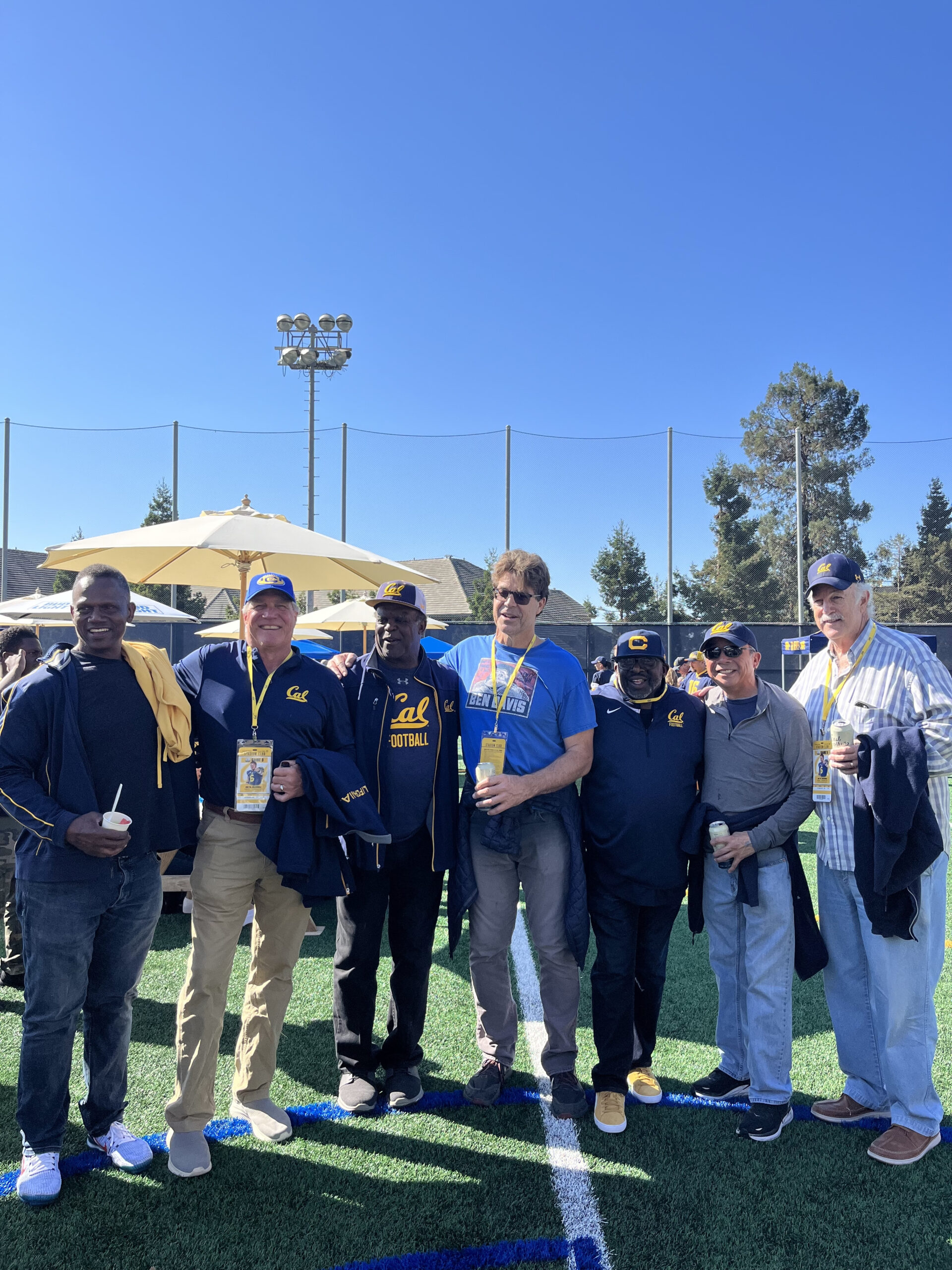
CAA: You created the famous Bear Territory chant. Can you describe the process?
AA: The Bear Territory chant was created in the spring of 1982. But let me take it back a little further. 1980 and 1981 were probably the worst seasons that I’d ever experienced while playing football at Cal. So as we sat in those stadiums and watched the excitement of the other teams and their fans, I found it very interesting to listen to the chants and the cheers. And I thought to myself, “Why doesn’t Cal have something like that?” We have great traditions, and we have a great band, but they just did not seem to move the crowd in the way I felt the crowd should be moved when teams were out there giving it their all, win or lose.
In the spring of ’82, my brother, who was attending Dartmouth College in New Hampshire, informed me that a professor named William Cole was coming to teach in the UC Berkeley African-American Studies Department for a moment. He was teaching a class focused on jazz from Africa to New Orleans. And so I took the class.
We had to listen to instruments, be able to identify those instruments, listen to many stages of jazz development in the United States, and identify the artists. We kept a journal in that class. After every class or at the end of the week, we’d submit our journal, we’d get it back with a grade and notes. While listening to a lot of the music, I began to think about the band. I began to think about the cheers, all very rhythmic in their way, and what moved the crowd. At some point, I said to myself, “You know what? I’m going to take the time to journal a song or a chant.” It went through many variations. But I think in my rudimentary way, in my amateur writing ability for songs, I started thinking about what we were about.
We were the Golden Bears. Bears are territorial and fight for their family. And that’s what we were doing. We were out there scrapping and fighting to bring home a victory or bring home the trophy.
I started putting it together in a way where it was a call and response, very similar to the music in Africa and the chants. I was in this jazz class, and I was listening to some music, and I was like, “You know it. You tell the story. You tell the whole damn world. This is Bear Territory.” It started very jazzy.
When I shared it with the defensive backs, they embraced it. It came with a more rhythm and beat, and it stuck. We started chanting it during practice. The band came up and they played. I asked them if they could follow my lead once I started into this chant. The band just sort of kicked in the drumbeat. What we have now has a lot more rhythm to it, a lot more soul to it. And so that is how the Bear Territory came into existence. It was first featured at the UCLA bonfire rally where we were playing UCLA at home. It was a great game.
CAA: What an incredible origin story. What and who is Bear Territory?
AA: The reality is Bear Territory embraces every student here, every student who will have the audacity of hope and desire to want to be a Golden Bear.
“Whether you are a student or a student-athlete, be all you can be. Build those relationships. That is what Bear Territory is all about. It embraces and reflects every student, every staff member, and every faculty member.”
Ahmad Anderson ’83
Each one of us has contributed to being recognized near and far as the sons and daughters of California and truly represent Fiat Lux.
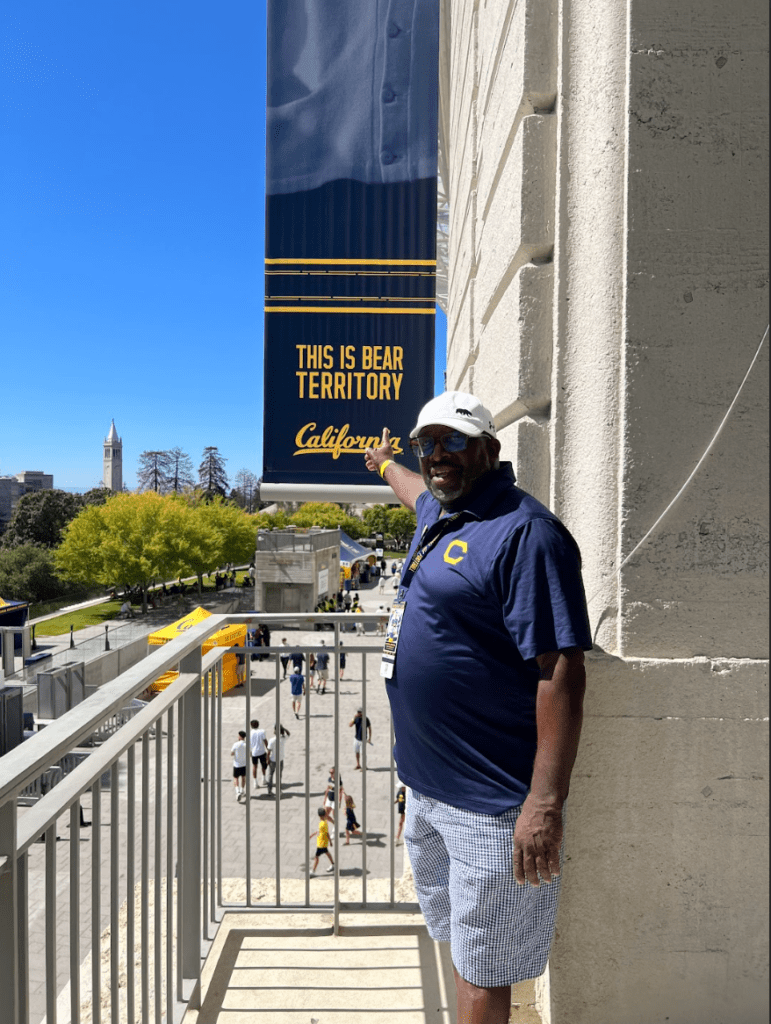
CAA: You have left an immeasurable mark on UC Berkeley. How does it feel to impact and inspire the Cal community?
AA: It’s very emotional for me to be able to still be alive, to be present, to walk into any athletic event and hear the crowd spark up the Bear Territory chant. To walk around campus and see it on the flags, on the banners painted, on the walls, on t-shirts, on shorts, on hats, on buses for advertisement. It’s very humbling. I’m ever so proud that I could contribute in such a way—a rallying cry for all that makes everybody proud. Whether we win or lose, we stand together knowing that we stand together in this great university, knowing that this is Bear Territory. We contribute on the field, we contribute in the classroom, we contribute at work, we contribute in this country, and we contribute globally—and that’s what makes the world go round. That is Bear Territory all day.
Volunteer with your alumni community.




